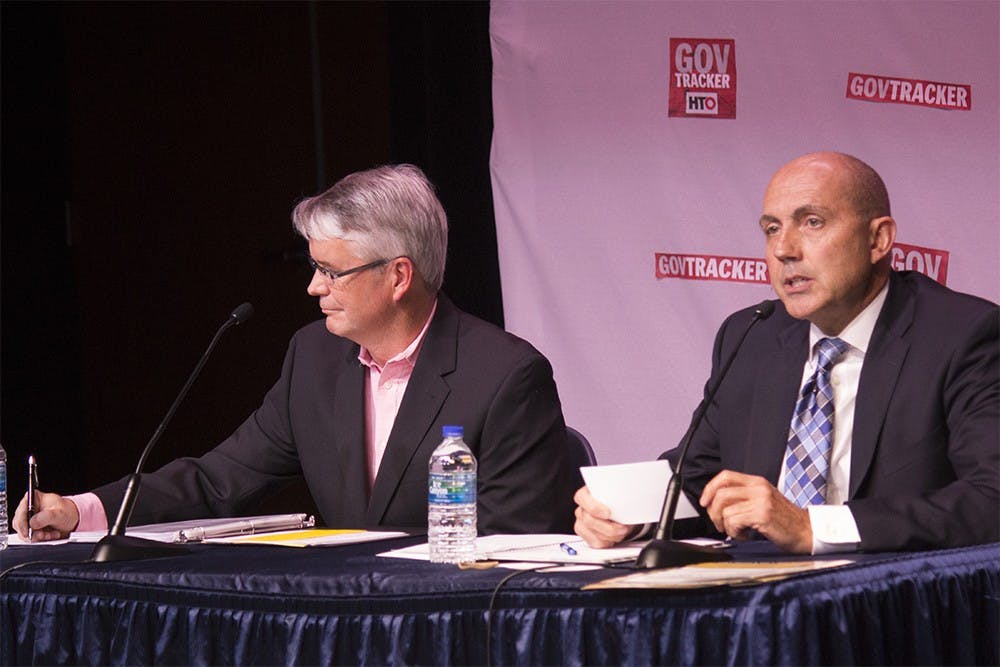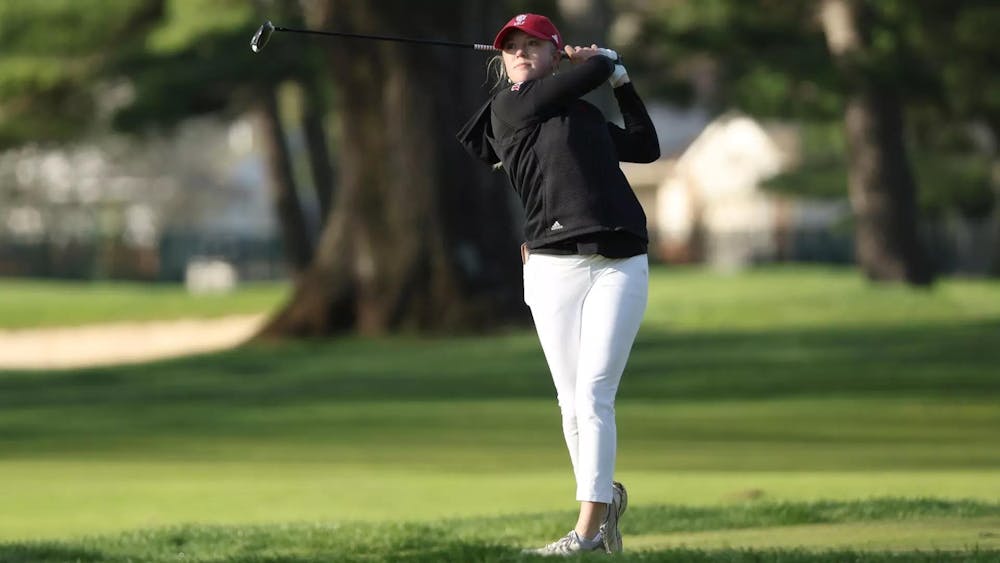“I want to do what I can to keep the tradition of progressive values that keep moving our community forward,” Democratic candidate John Hamilton said.
During the debate, Hamilton emphasized the importance of technological advancement. He said he supported the installation of public broadband in Bloomington, as well as a focus on office space, not housing, in plans for the downtown tech park.
“(Bloomington) built the first color TV in America,” Hamilton said. “But we also built the last color TV in America. Jobs are changing, and we have to change with them.”
John Turnbull said as a Republican, he could serve as a “balancing agent” for the mainly Democratic local government.
He emphasized his staff’s expertise and willingness to work with Bloomington residents to make things happen.
“If you’re comfortable with change, great,” Turnbull said. “If not, more of the same is coming.”
Hamilton said he supported inclusionary zoning, or requiring housing contractors to make and keep a portion of their buildings affordable to families with lower incomes.
He also suggested the city use the Housing Trust Fund, which he said contains one million unused dollars, to fund affordable housing.
“I think we have to have strategies,” Hamilton said. “If we keep doing what we’re doing or let the market move forward, (nothing will change).”
Turnbull said inclusionary zoning would not create ideal housing for families, and instead argued increasing the amount of housing built would cut down on demand.
Both candidates said they supported cooperation between the mayor’s office and local nonprofits.
Turnbull said he would help by connecting volunteers and possible donors with nonprofits and the community so families could stop relying on their services.
“I do wish some of the food places, instead of bragging about how many more meals they served, could brag about how many fewer meals they served,” Turnbull said. “I think that would be a better approach.”
Hamilton said a mayor’s job is to bring in federal funding for nonprofits, as many Bloomington families need help from kitchens or shelters.
“There are some ways that Bloomington is two cities,” Hamilton said. “Demands (for aid) are not decreasing — there are definitely signs that they’re increasing — and I think one of the jobs of the mayor is to see what we can do to help that.”
To combat climate change and promote sustainability, Hamilton suggested publishing emissions reports and installing solar panels, as well as pricing water so “the more you use, the more you pay.”
Turnbull said he had no plan for solar energy, as it wasn’t “the low-hanging fruit,” but he said using public transport and conserving resources would help.
“We’re in a large, kind of over-consumptive mode,” Turnbull said. “I think the issue is a much greater issue than just Bloomington.”
Turnbull said IU is a great asset to Bloomington, “but ... not a great neighbor. I say that because we’re an afterthought and they’re our greatest influence.”
Turnbull said he would speak with IU administration about the students admitted, as those residents would affect everything from animal shelters to future jobs in Bloomington.
“I’m going to stand right outside Dr. McRobbie’s office and say, ‘What students are you letting in, what are your demographics,’” Turnbull said. Turnbull said he’d like to know about the wealth of students and how it might affect local organizations.
“You’ve got to get in and open a dialogue,” Turnbull said.
Hamilton said he would like to talk to IU, the city’s largest employer, about integrating the city’s tech park into more private jobs, as well as the university hospital’s effects on eastern Bloomington.
The forum was organized by the Herald-Times, Community Access Television Services and the Optimist, Bloomington High School South’s student newspaper.
Herald-Times editor Bob Zaltsberg moderated, and city government reporter Megan Banta was a panelist alongside IU political science professor Marjorie Hershey and Lucas Hickey, 18, the editor of the Optimist.
“I’m choosing to focus my questions on things relevant to — I wouldn’t call it the youth, per se — but that skews kind of younger,” Hickey said. During the panel, he asked Hamilton and Turnbull about possible solutions for the shortage of public school bus drivers in Bloomington.
Hickey, who volunteered for Hamilton’s campaign, said the two candidates may not be as dissimilar as they first appear — after all, he said, both appear to support diversity in Bloomington and growing local business.






